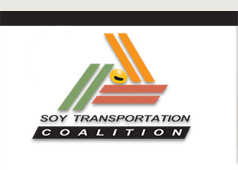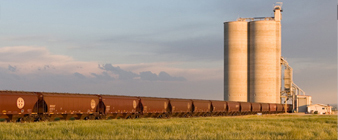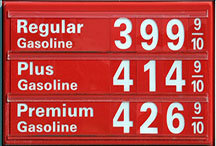 |
 |
|
| eNews • February 2014 | ||
| Promoting a Cost-Effective, Reliable and Competitive Transportation System |
||
 Transportation chairman opposes gas tax hike
Transportation chairman opposes gas tax hike
Congressman Bill Shuster (R-PA), Chairman of the House Transportation and Infrastructure Committee, on Tuesday ruled out an increase in the federal gas tax this year to pay for transportation projects.
Transportation advocates argue that increasing the federal gas tax from 18.4 cents per gallon would be the easiest way to shore up the trust fund that Congress uses to pay for road and transit projects.
But Shuster said Tuesday during an appearance at an infrastructure summit hosted by the Washington, D.C.-based Building America’s Future group that "economically, it's not the time" to raise the gas tax.
Shuster added that he was not sure there was enough support from lawmakers or the public to push for such a proposal.
The gas tax has not been increased since 1993. It is traditionally used to providing funding for the Department of Transportation’s Highway Trust Fund, but revenue has been dwindling, as Americans drive less often and cars become more fuel efficient.
The current surface transportation funding bill is scheduled to expire in September, which coincides with the Department of Transportation’s projected bankruptcy date for the Highway Trust Fund.
The expiring transportation measure was passed in 2012. It provided only two years of funding, compared to previous five- or six-year appropriation bills, because lawmakers struggled to close a shortfall between the gas tax collections and infrastructure spending.
The gas tax currently brings in approximately $35 billion, but the 2012 transportation bill included about $54 billion in road and transit expenditures, which advocates say is barely enough to scratch the surface of the U.S.’s transportation needs.
Former Transportation Secretary Ray LaHood said at the same event that the easiest way to provide the additional funding was to increase the gas tax.
â€Е"Nothing is going to create the kind of money that increasing the gas tax and indexing does,” the former DOT chief said. â€Е"And then use tolling, raise TIFIA [the Transportation Infrastructure Finance and Innovation Act], do more TIGER [Transportation Investment Generating Economic Recovery] money, do all of these things. But only do it after you replenish the fund that has built America and put America back to work.”
LaHood, who served as DOT secretary when Congress passed its last transportation bill, called the two-year 2012 measure a â€Е"joke.”
"We need someone to step up and say we need a six-year bill; we need to increase the gas tax; we need to index it," LaHood said. "I would increase it 10 cents."
Shuster said during his remarks he was hoping for a long-term transportation bill as well, despite his opposition to increasing the federal gas tax. LaHood said lawmakers should at least consider indexing the gas tax to future inflation rates.
"If they'd have indexed it in '93, I don't think we'd be having this conversation."
Other ideas that have been floated by transportation advocates include replacing the gas tax on drivers altogether in favor of a fee that is paid by oil wholesalers.
Sen. Barbara Boxer (D-Calif.), who is chairwoman of the Senate Environment and Public Works Committee, said last fall that it was worth exploring the possibility of doing away with the gas tax after states such as Virginia had experienced success in making similar switches.
Soy Transportation Coalition |
|
